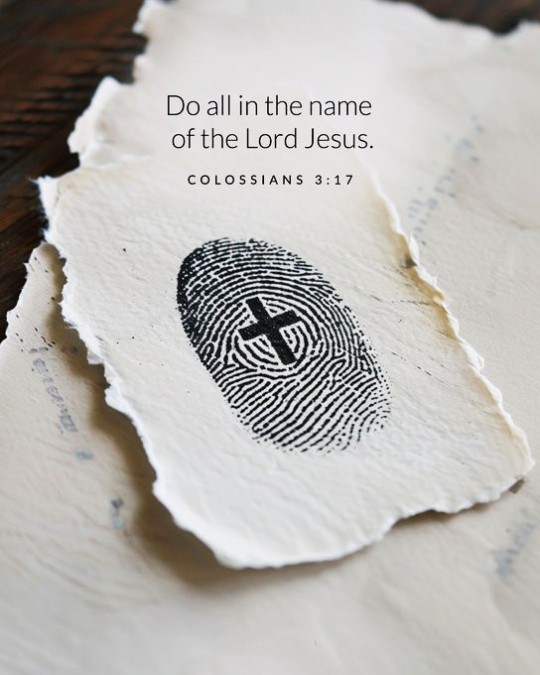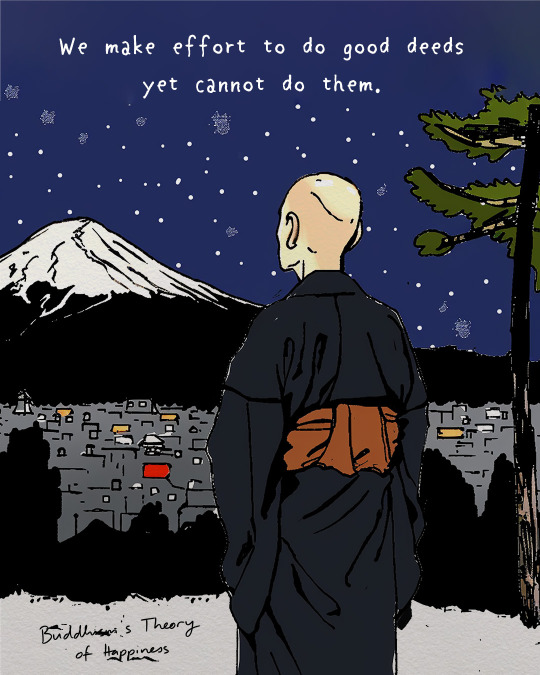#deed
Explore tagged Tumblr posts
Text

Psalm 105:1-3 (NASB1995) - Oh give thanks to the LORD, call upon His name; Make known His deeds among the peoples. Sing to Him, sing praises to Him; Speak of all His wonders. Glory in His holy name; Let the heart of those who seek the LORD be glad.
11 notes
·
View notes
Text
“You are what your deep, driving desire is. As your desire is, so is your will. As your will is, so is your deed. As your deed is, so is your destiny.” The Upanishads
31 notes
·
View notes
Text
Просто два хороших мальчика...
*Just two good boys…
#человечность#гуманизм#милосердие#эмпатия#поступок#совесть#мотивация#вдохновение#humanity#humanism#mercy#empathy#deed#conscience#motivation#inspiration#русский пост#русский блог#русский тамблер#видео
34 notes
·
View notes
Text
#6629
Bast, oh delightful lady of splendor, Rising from the horizon alongside the sun To dispel all that is of chaotic darkness, Slay diseases before their deeds are done.
7 notes
·
View notes
Text

Extraordinary Attorney Woo
2 notes
·
View notes
Text

"Everything I’m doing is an undoing, the deeds themselves are just misdeeds in the end." - Ingeborg Bachmann, from Three Paths to the Lake; “Eyes to Wonder”
'Katharsis' by David Schermann
#literature#quote#reading#writing#book#novel#author#writer#books#ingeborg bachmann#three paths to the lake#eyes to wonder#art#artist#photography#katharsis#david schermann#doing#undoing#deed#misdeed#eyes#wonder#lake#path
6 notes
·
View notes
Text
19. Ethical Ties: Exploring Integrity Through Our Interpersonal Relationships and Attachments
It takes great powers of judgment to measure someone else’s. Words demonstrate integrity, and deeds even more so. Here is where one needs extraordinary care, profound observation, and critical power.” — Baltasar Gracián
In the tumultuous landscape of human interaction, we often find ourselves ensnared in a web of moral and ethical dilemmas that can leave us feeling vulnerable and exposed. This complex terrain—where emotions can quickly escalate into fierce confrontations—is filled with conflicting intentions and unexpressed desires, often hidden beneath a façade of politeness. In these moments, communication becomes not just a necessity but a vital tool for survival. We must confront the reality that judgment is not merely a choice; it’s a crucial lifeline for anyone striving to navigate the intricate dance of human connection.
Every word we speak carries weight. It can either lift someone up or cut deeply, revealing the hidden currents of our emotions and the intricate dance of our motivations. Each conversation holds the potential to reflect our deepest fears and insecurities, revealing the historical wounds and unfulfilled longings that shape our relationships. It’s in this space of vulnerability that we must honor the truth of our experiences and acknowledge the emotional stakes at play.
As we traverse this challenging landscape, it is essential to engage in a profound exploration of the dynamics that shape our interactions. We must bravely recognize how societal pressures often warp our understanding of what it means to connect authentically. This awareness allows us to confront the uncomfortable truths about our relationships—the ways we might unconsciously maintain cycles of disappointment and hurt, often driven by distorted expectations placed upon us by the world around us.
In those moments of reflection, we can draw strength from the wisdom of thinkers like Gracián. His teachings inspire us to push back against the insincerity that can permeate our connections and encourage us to seek the integrity within ourselves. By confronting these uncomfortable truths, we can reclaim our sense of agency and vulnerability, cultivating relationships built on transparency and mutual understanding.
Ultimately, this journey demands courage—the courage to engage authentically, to voice our fears, desires, and truths. It implores us to embrace the fullness of our emotional experiences and to form connections that honor our deepest selves. With this heartfelt commitment, we can transform the nature of our relationships, empowering ourselves and those around us to thrive in a world where integrity and kindness reign, and where we are not just surviving but truly connecting in meaningful ways.
To delve into the realm of our interpersonal dynamics is to unravel the intricate tapestry of attachment that binds us together, revealing the often convoluted motives and veiled deceptions that shape our interactions. In an age where we expect sincerity in our words, it becomes increasingly clear that our actions—a sometimes unfiltered reflection of our true selves—expose the deeper essences hidden behind polished exteriors. Within a culture steeped in self-interest and the ever-present shadow of existential dread, we must nurture a keen awareness akin to that of an explorer navigating a jungle filled with both predators and allies, discerning the genuine from the superficial.
This journey through our interwoven systems of attachment calls for courage as we confront our own biases and distorted perceptions. We are urged to engage in an introspective reckoning with our ethical boundaries, facing the uncomfortable truths that may lie within our hearts and minds. As we navigate this complex landscape, we must remain vigilant, understanding that the very perceptions we cling to can obscure the impulses we seek to uncover in ourselves and others.
Through the meticulous honing of our judgment amidst the chaos of human relationships, we build resilience, empowering ourselves to traverse the multifaceted nature of attachment with both insight and grace. In this expansive jungle of interpersonal engagement, those who flourish are not just survivors but skilled navigators who wield the art of discernment. They recognize that beneath every exchange lies an underlying struggle for power, significance, and connection, and they approach each encounter with an open heart and a discerning mind.
It is in this exploration that we can cultivate a deeper understanding of ourselves and the dynamics that govern our relationships. By embracing the complexities of attachment, we foster connections that honor our vulnerabilities and encourage growth, ultimately transcending the limitations imposed by fear and misunderstanding. In doing so, we pave the way for more authentic and fulfilling interactions in this modern world, enriching our lives through the transformative power of genuine connection.
Words vs. Deeds: The Dual Conduits of Sincerity
To delve into the essence of human interaction, one must confront an uncomfortable truth: words are often little more than empty vessels cloaked in artifice. In our modern society, where communication flows like a torrent through screens and social media, words can ensnare the unwary, disguising ulterior motives with their seductive charm. The superficial consumer of language finds solace in the surface gloss, indulging in a world of rhetoric that offers fleeting comfort while neglecting the deep, often disturbing currents that generate real meaning. This naiveté not only diminishes one’s understanding but also erodes the very foundation of dialogue, which necessitates a recognition of the moral weight of our actions over the hollow promises of our speech.
We exist in an era that celebrates verbal brilliance, yet it is actions—vivid manifestations of intention—that truly reveal our character. Deeds stand as unfiltered expressions of our moral compass, instruments that expose the chasms between our stated beliefs and our true behaviors. In a world rife with disillusionment, words can be wielded like weapons, crafting illusions of virtue and integrity that deceive even the most discerning observer. It is through deeds, however, that we unearth the authentic self, stripped of the adornments of eloquent speech. Herein lies the ethical imperative: we must interrogate the disconnect between our proclamations and our practices if we are to uncover the unvarnished truth of our relationships.
This disparity becomes stark in our systems of attachment, where the allure of verbal declarations often masks profound psychological vulnerabilities. In a society driven by image and perception, individuals may forge bonds based on the superficial allure of language rather than the substance of genuine connection. As we navigate these treacherous waters, it is crucial to scrutinize the motives that drive our interactions and assess whether our words are aligned with our true ethical beliefs.
The modern world beckons us to engage at a deeper level, urging us to transcend mere verbal exchanges and embrace the intricate reality of human connection. Authenticity does not stem from eloquence; rather, it arises from the fortitude to let our actions speak truths louder than our words. Only through this authentic alignment can we weave a tapestry of trust and understanding, enabling us to build resilient interpersonal systems amid the turbulence of contemporary life.
Our journey hinges on this interplay between words and deeds—a relentless examination of our ethical constructs that forms the backbone of our shared humanity. To foster genuine connections, we must be prepared to confront our own contradictions and engage in a moral reckoning, allowing the clarity of our actions to illuminate the shadows cast by our insincere discourse. Only then can we hope to nurture a culture rooted in integrity and authentic attachment, transforming the landscapes of our personal and social relationships in an increasingly complex world.
The Moral Interplay of Communication and Behavior in Shaping Relationships and Society
To the untrained and unsuspecting eye, the glittering facade of verbal and written declarations presents a grotesque illusion—an intoxicating spectacle that ensnares the mind in a web of profound misunderstanding. We are seduced by the polished veneer of words, blissfully oblivious to the deceit festering beneath. This betrayal of our intellect is a testament to our naivety, a repulsive admission that we often revel in artifice rather than seek the gritty truths lurking in the shadows of human interaction.
Actions—those elusive manifestations of intent—frequently obscure or reveal deeper agendas just beneath the surface. We find ourselves at a critical juncture, grappling with the precarious tension between what is spoken and what is genuinely enacted. Navigating this treacherous terrain demands more than mere intellect; it requires a keen moral acuity that pierces the charming veil of rhetoric, exposing the raw motivations driving our interactions.
Through this uncompromising ethical lens, we are compelled to dismantle the intricate deceptions woven into our communication and engage with the elemental forces shaping our shared realities. The question lingers: How willing are you to confront the unsettling truths hidden behind the words of those you engage with?
In this intricate web of human connection, the distinction between words and deeds emerges as a pivotal fulcrum upon which the axes of all moral judgment rests. Those equipped with the discernment to navigate the complex interplay of speech and action unveil a kaleidoscope rich in insights, ethical dilemmas, and moral questions that demand scrutiny. This challenge compels us towards a rigorous examination of our relationships, urging us to confront the darker undercurrents of human motivation, vulnerability, and ambition.
As we embark on this exploration, we are drawn into a nuanced choreography—a dance where the interplay of words and deeds lays bare not only our own character but also the fundamental truths of those around us. This dynamic unveils the psychological underpinnings of our attachment systems in a modern world replete with disconnection and superficiality. In striving for understanding, we sharpen our capacity to navigate the labyrinthine complexities of human existence, cultivating an empathy that encourages deeper connections and greater accountability in our personal and societal interactions.
Our ethical obligation in this journey lies not just in comprehension but in action. As we forge paths that allow for the recognition and acknowledgment of the intricate web binding us, we must appraise our responsibilities toward one another. The choices we make—how we communicate and the sincerity of our actions—reflect our values and define our relationships. In embracing this moral imperative, we can challenge the expedient norms of contemporary society, advocating for an engagement that honors integrity, vulnerability, and mutual respect. Ultimately, it is through this heightened sense of ethical awareness that we can foster a more profound, authentic sense of connection, unearthing the often painful realities of the human experience while weaving a brighter tapestry of belonging in a deeply fractured world.
The Importance of Contextual Awareness: Uncovering the Deeper Significance
As the architect of your own destiny, you find yourself unwaveringly positioned on the psychologically fraught battlefield of existence, where the relentless war of life perpetuates an abiding struggle against the corrosive moral paradigms that define our modern social systems. Each individual you encounter transcends the mere role of adversary; they emerge as complex embodiments of human experience, wielding unique weapons of interaction—shaped by personal histories, unquenched aspirations, and profound vulnerabilities. Their authentic motivations often lie obscured beneath chaotic facades, and it is your moral obligation to disentangle this intricate tapestry of behavior that governs every interaction. Are you prepared to confront the unsettling truths about how you engage with others, or do you prefer to bask in the comforting lies our society promotes?
In this arena of ceaseless conflict, life evolves as a sustained campaign in which each decision you make possesses the weight to alter the trajectory of this battle. You are situated at the pivotal center of this moral confrontation, and your choices resonate far beyond your individual experience, wielding influence that extends to the morale and cohesion of those around you. Every action you undertake—whether a courageous advance or a cautious retreat—creates ripples throughout the complex network of your relationships.
Your ability to discern and navigate the nuanced emotional undercurrents present in these moments places you at a critical juncture. Do you possess the insight to critically evaluate how your attachments to others may be informed by the very corrupt expectations dictated by our society? Are you imparting resilience and empathy, or are you perpetuating a cycle of transactional relationships that inherently undermine genuine connection? As you explore the depths of your relational dynamics, are you ready to dismantle the ethical illusions that color your interactions and face the disquieting reality of your own complicity in this pervasive moral decay?
Navigating this treacherous terrain devoid of profound moral awareness invites the peril of significant misinterpretation; the actions of others may be erroneously construed as hostility or betrayal. Such grave misjudgments can precipitate damaging friendly fire—an erosion of trust that compromises the foundational integrity of your collective. Yet, by profoundly exploring the intricate narratives embedded within each individual’s psyche and acknowledging their unique struggles and triumphs, you cultivate a formidable alliance rooted in empathy, understanding, and mutual respect. This compassionate engagement not only fortifies relationships but also enhances resilience, empowering your collective to confront challenges with unwavering unity and purpose.
Embarking on this transformative journey into the heart of conflict fosters an unparalleled camaraderie, shaping your unit into an indomitable force. Open communication and shared experiences emerge as your bulwark, safeguarding your ranks against the corrosive effects of discord. Within this realm of deep understanding, you ignite not only loyalty but also an unwavering moral determination, equipping your comrades to face life’s adversities with steadfast courage and integrity. Together, you nurture a culture of mutual support and resilience, reinforcing the bonds that enable your collective to thrive even in the face of formidable challenges.
Ultimately, as you navigate the labyrinthine complexities of this ongoing struggle, you redefine the very essence of leadership. You are not merely a soldier; you are the architect of victory, illuminating pathways toward resilience, ethical growth, and moral clarity. By honoring the intricate interconnections of each individual’s journey, you forge a cohesive battalion prepared to confront life’s harsh realities. Together, you transmute the chaotic battlefield into a harmonious symphony of collective strength and virtuous purpose, where every member plays an indispensable role in the pursuit of shared ideals and common goals.
Confronting Bias and Limitations: Embracing Self-Awareness and Growth in the Pursuit of Truth
Consider this harsh reality: the most suffocating prison isn’t built from cold steel bars, but rather forged from the miserable and insidious chains of our own biases and self-imposed limitations. As we navigate the treacherous landscape of human interaction, we must force ourselves to face a brutal truth: it is our own narrow-minded viewpoints that conspire to rob us of the autonomy and self-agency we cherish so deeply. To remain shackled by these self-inflicted restraints is to willingly betray our own strength—an unforgivable act that blinds us to the immense potential that lies dormant within and around us.
Recognize this treachery against yourself, for true mastery demands that you shatter these chains, redefine your perspectives, and assert command over your destiny. The path to enlightenment is not for the faint-hearted; it requires a fierce dismantling of the limitations we so casually accept and an unwavering determination to seize back control. Reclaim your power, challenge the status quo, and unleash the force of your unbridled potential—anything less is a betrayal of the fierce spirit that lies within you.
When desperation and frustration seize us, we retreat into a stifling worldview—a mental fortress where snap judgments take hold and reign unchallenged. In this bleak stronghold of absolutism, cynicism festers like an untreated wound, obscuring our vision and obliterating the empathy crucial for dissecting the intricate tapestry of human existence. This self-imposed prison suffocates understanding, trapping us in a cycle of harsh critiques and reducing the multifaceted nature of humanity to oversimplified labels. It’s a dangerous descent that blinds us to the profound connectivity we share, leaving us vulnerable to the very despair we seek to escape.
Consider the vile grip of confirmation bias—it’s a cruel trick we inflict upon ourselves, meticulously cherry-picking information that bolsters our twisted views while deliberately ignoring the vast array of perspectives that could enlighten and challenge our narrow minds. And let’s not forget the despicable practice of stereotyping, where we reduce individuals to mere hollow caricatures, stripping them of their humanity and dismissing the richness of their stories. Each instance of bias fortifies impenetrable walls, trapping us in our self-imposed chambers of ignorance, suffocating our ability to connect, understand, and grow. This pitiful state of denial not only isolates us but also reinforces the very shadows we claim to reject.
In this high-stakes battle for social survival, the quest for psychological clarity emerges as our most powerful weapon. We must cultivate a razor-sharp awareness, digging deep into the origins of our biases and relentlessly examining the limitations that choke our growth. It’s time to face the harsh reality: by shunning the discomfort of introspection, we doom ourselves to a pitiful existence of bitter stagnation and moral decay. This refusal to confront our inner demons not only perpetuates ignorance but also shackles our potential, leaving us adrift in a sea of complacency and despair. Embrace the struggle of self-examination—only then can we forge a path toward genuine understanding and transformative change.
This odyssey of self-reflection demands that we approach our biases with both precision and audacity. It is not mere discomfort we face; it is a battle—a clash between our established beliefs and the insidious decay lurking beneath their surface. Acknowledgment of this decay is crucial, for it serves as the foundation upon which our modern interpersonal systems stand vulnerable. To strip away the layers of ignorance is to wield knowledge as a weapon, illuminating pathways to empathy and connection that would otherwise remain shrouded in darkness.
Imagine wielding empathy not as a passive trait, but as a fierce strategic maneuver—an act of rebellion against the biases that strive to dictate our reality. In this gritty confrontation, we confront the moral bankruptcy that pervades our society, dismantling the toxic frameworks that separate us. Such defiance not only disrupts the status quo but also cultivates fertile ground for understanding and empathy to flourish, catalyzing real social transformation.
As we persist in our unending quest for deeper connections, we fortify our moral foundations and inspire those around us to join this crucial struggle. Together, we can forge a unified front against ignorance and division, reweaving the very fabric of our interpersonal dynamics. Through this collective effort, we shatter the restraints that bind us, crafting a richer, more complex tapestry of human experience—a testament to the power of strategic introspection and resilient connection in a world rife with challenges.
The Crucible of Awareness: Journeying Towards Profound Observation
Now, brace yourself for the unvarnished truth about integrity, revealed in the starkest terms: the vast chasm between what we profess and what we enact is a grotesque spectacle, exposing the corrupt underbelly of human nature. This is not merely a critique of our collective failure to walk the talk; it serves as a damning indictment of the pervasive moral cowardice lurking in every corner of society. Too many individuals conceal themselves behind the thin veil of good intentions, recoiling at the daunting prospect of facing their own hypocrisy. This fragility not only undermines our authenticity but also perpetuates an environment where genuine accountability remains elusive. It’s time to rip off the mask and confront the uncomfortable truths that bind us, for only then can we aspire to a higher standard of integrity.
In a world drenched by superficial platitudes, we have become painfully familiar with the relentless hypocrisy of insincere rhetoric. It strikes at our intelligence and decency, leaving a bitter taste in our mouths. We ought to feel a deep disgust, a visceral revulsion toward those who shy away from unearthing the grotesque truths hidden within their own souls. Such individuals are not merely weak; they are morally bankrupt, trafficking in hollow boasts while floundering in the murky waters of self-deceit. This pervasive denial not only erodes their integrity but also threatens the very fabric of our shared humanity. It is crucial that we demand authenticity, urging others to confront their truths and engage with the world more honestly, for only then can we foster genuine connections and a more honorable society.
Let us expose the grotesque failure of those who cower in the shadows, paralyzed by the fear of introspection that could shine a light on their shortcomings. They are the real parasites, draining the vitality from sincere connections while flaunting a smirk that reveals a cowardly dismissal of their own contradictions. Their actions are discordant with their words, creating a dissonance that suffocates the essence of integrity itself, reducing it to a sick joke. This hypocrisy not only undermines relationships but also perpetuates a culture where authenticity is sacrificed at the altar of convenience. It is our duty to confront this dishonesty, demanding alignment between word and deed, to reclaim integrity as a guiding principle in our interactions and our lives.
True strength pierces through this pervasive and rolling moral fog. It calls for the fierce courage to confront the unflattering reality of our motivations. Now is the time for a gut-wrenching leap into the depths of self-examination, to wrestle with our inner truths and claw our way out, reborn in authenticity. This journey is not for the faint of heart; it is a brutal confrontation with all that we hide from ourselves. It requires unwavering honesty and a willingness to embrace discomfort, as we shed the illusions that shield us from our true selves. Only through this relentless pursuit of truth can we cultivate genuine integrity, fostering deeper connections and a more profound understanding of our shared humanity.
Let our disgust ignite a fiery resolve—a defiant stand against the nauseating parade of moral cowardice that seeks to ensnare us. Refuse to acquiesce to the insipid standards of mediocrity; let this intense revulsion serve as your rallying cry! Stand boldly in the clarity of your convictions, embracing the discomfort that comes with honesty. Embody the powerful integrity that resides within you. Only then can we break free from complicity and emerge as true agents of change, shaking the very foundations of a culture steeped in deception. Together, let us champion authenticity, dismantling the structures that allow hypocrisy to thrive, and inspiring others to join us on this transformative journey toward a more honest and fulfilling existence.
Navigating the Depths: Embracing Introspection and the Courageous Path of Vulnerability’s
In this intricate dance of human interaction, we are compelled to engage in the unsettling art of introspection, delving deep into the twisting corridors of our vulnerabilities. It is within these shadows that we confront insidious specters like jealousy, despair, and judgment—corrosive forces that warp our perceptions and breed resentment. To truly understand the complexities of our relationships, we cannot shy away from these uncomfortable truths; instead, we must face them with relentless scrutiny.
This journey demands an unflinching gaze into the dark mirror of self-awareness, where the dual forces of perception collide. We must assess the integrity of those around us while grappling with our own fallibility. It is crucial to recognize that the judgments we cast often reflect unresolved struggles lurking within—shadows that distort our worldview.
Embracing contempt for our moral failings can awaken a primitive sense of self-preservation. This visceral revulsion can serve as a powerful catalyst for transformative action. It drives us to reject complacency, compelling us to rise above our sordid tendencies. By acknowledging our darker inclinations, we gain the power of choice, forging a path defined by authenticity and integrity.
Let this internal confrontation be a crucible, shaping us into individuals capable of profound change. By illuminating our contradictions, we cultivate the strength to navigate the murky waters of our interactions, ensuring our responses are guided by deliberate, insightful awareness of ourselves and the world around us. In this enlightened state, we transcend our baser instincts, emerging as architects of genuine connection and understanding. Here, we can build a more compassionate and authentic society, free from the distractions of superficiality and deceit.
The Weight of Judgment: Navigating the Ethical Obligations and Consequences of Moral Accountability
Engaging with Gracián’s insights necessitates a profound exploration of integrity, placing you at a critical crossroads of discernment and ethical commitment. Visualize this intersection as a rich psychological landscape where your choices can reshape not only your own character but also the greater societal framework. Each decision you make serves as a testament to your core ethical principles, revealing the depth of the virtues you are committed to nurturing.
In your unwavering pursuit of integrity, you confront a fundamental psychological dilemma: will you allow the deceptive allure of hypocrisy to cloud your judgment, or will you bravely embark on a journey of introspection and self-awareness? This crossroads is not merely a choice; it is an invitation to embrace moral responsibility. Authentic integrity is cultivated through the disciplined practice of honesty and self-evaluation.
In our contemporary system of interpersonal relationships and attachments, mindful observation serves as a keystone for profound understanding. It propels us beyond shallow judgments, compelling us to foster a culture anchored in truthfulness and empathy. By strategically scrutinizing our values and behaviors, we enhance our ability to forge genuine connections within our networks. This dedication reconfigures integrity from a mere personal virtue into a collective principle that significantly enhances both individual relationships and the socio-cultural fabric of our broader community.
Every step on this journey necessitates intentional engagement, urging us to move beyond superficial critique and pursue moral clarity with vigor. By reconceptualizing integrity as an ongoing practice of accountability and authenticity, we assert a dynamic stance that not only defines our character but also exerts a ripple effect on our social circles. Our actions resonate through time, establishing a legacy fortified with integrity and empathy, thereby altering the psychological landscape of our communities.
This endeavor transcends individual aspirations; it becomes a collective imperative for societal evolution. In this critical moment, we must act with steadfast resolve, understanding that the cultivation of deeper, more meaningful attachments lies at the heart of transforming our modern systems of interaction. The stakes are high, and the time for strategic action is now.
Each moment on this path requires deliberate engagement. By reframing integrity as an ongoing practice of accountability and authenticity, you assert a powerful stance that defines your character and positively influences those around you. Your actions resonate far beyond the present, establishing a legacy imbued with integrity and compassion that shapes the psychological landscape of your community. This endeavor is both vital and immediate—now is the time to act with unwavering resolve.
Conclusion: Elevating Interpersonal Relationships Beyond Our Social Constraints
As we traverse the intricate web of interpersonal relationships, we must wield our judgment not merely as a tool but as a powerful moral compass—illuminating the murky depths of hypocrisy that often underlie our connections rather than using it to sever bonds. In this complex psychological sphere, we are tasked with embodying vigilant guardians of integrity, deftly navigating the perilous waters of deceit, self-deception, and the unhealthy attachments fostered by the corrupt moral expectations of our modern social systems.
The necessity of aligning our words and actions transcends mere preference; it embodies a profound moral obligation rooted in our interactions with others. This summons calls us to delve into the principles of authentic connection and genuine attachment, challenging ourselves to dissect the very dynamics that influence how we relate to one another. In a landscape frequently dominated by superficial bonds and ambiguous commitments, we must embrace our role as architects of deep, meaningful relationships.
By establishing a moral framework that prioritizes radical honesty and transparency, we create fertile ground where these values can flourish, even amidst the chaotic currents of contemporary life. This dedication to authenticity compels us to confront discomfort and challenge the societal norms that dictate our relational dynamics, which often skew our attachments and lead us to engage in disingenuous interactions. By fostering open dialogues that interrogate these conventions, we honor our integrity while inviting others to join us on this transformative path toward real connection and trust.
Within this confrontation lies the potential for significant evolution—not only in our individual relationships but also within the broader tapestry of human interaction. To elevate our interpersonal experiences beyond societal constraints, we must master the art of authentic engagement, forging bonds that genuinely reflect our values and aspirations. In doing so, we transcend the limitations imposed by a society that often prioritizes superficial attachments over meaningful connections, nurturing relationships that resonate with truth, understanding, and mutual growth.
It is through this deep commitment to integrity and authentic attachment that we can reshape our interactions. By examining how we attach ourselves to others, we can cultivate profound relationships that encourage vulnerability, empathy, and resilience, ultimately enriching our shared human experience. Let us direct our efforts toward building connections that defy the oppressive standards of superficiality and foster an enduring sense of trust and belonging.
As we stand on the threshold of profound ethical transformation, we are urged to engage in the disciplined practice of self-reflection and intentionality. By doing so, we sharpen our moral discernment and spark a transformative ripple effect, motivating others to pursue this commitment to integrity. In forging these meaningful connections, we cultivate a communal environment anchored in trust and mutual respect, where the harmony between word and deed fosters an experience of deeper congruence and moral fortitude. Together, we can inspire a brighter future, filled with authentic relationships and a renewed sense of purpose, creating a world where integrity and compassion flourish within everyone.
#Baltasar Gracián#Integrity#Word#Deed#Truth#Change#Courage#Ethics#Morality#Philosophy#writerscommunity#writers on tumblr#*
4 notes
·
View notes
Text
"Christ Jesus knew all about sin, but he never sinned–not even once. He lived in a sinful world, but the stain of sin never tarnished his character. Of all the billions of people who have lived on planet earth, he is the only one about whom it can be truly said that he never sinned in word, in thought or in deed. There is no hint of moral contamination surrounding his name."
Ray Pritchard
4 notes
·
View notes
Text
Discarded concept
Deed, the stick bug of Realization
he/it/they
Existence box
Miraculous: ear cuff
Weapon: water searching stick
Transformation:
Reality check!
Lose touch.
Favorite food: salt
Deed is a level-headed kwami and thinks a lot about what happened, is happening, and will happen. It tries to be neutral about these thoughts but can’t help itself and be pessimistic. Sometimes they get overwhelmed, but Imaa is always there to pull them back into reality.
Powers:
True Colors- Ability to see through illusions and magical objects. Its usage is shown by a yellow glowing ring around the holder's eyes.
Debug- Reverts a person to their original form and rids the effects of subjection-based magic.
Resin- Covers an area in a dome where magic cannot be cast.
Hark Bark- The Cure
Extra:
He calls his holders twigs.
It is visible without a miraculous.



Thanks @hades-999 for the idea!
24 notes
·
View notes
Text

Revenge Attack for @ladyinsertnamehere of their character Deed! I experimented some with this one and really like how it turned out :]
(Do not repost. Reblogs > Likes!)
#it’s late but it’s here!#art#my art#Ivy’s art#others ocs#Deed#eyestrain#ArtFight#ArtFight 2023#ArtFight revenge#ladyinsertnamehere
12 notes
·
View notes
Text

Colossians 3:17 (NKJV) - And whatever you do in word or deed, do all in the name of the Lord Jesus, giving thanks to God the Father through Him.
46 notes
·
View notes
Text
“I was in darkness, but I took three steps and found myself in paradise. The first step was good thought; the second, a good word; and the third a good deed.” Friedrich Nietzsche
40 notes
·
View notes
Text
🌌 Постарайтесь понять, что не существует единственного для всех будущего. Их много, и каждый ваш поступок творит какое-нибудь из них… Вы это поймёте. Вы это обязательно поймёте…
© Аркадий и Борис Стругацкие "Понедельник начинается в субботу"
*Try to understand that there is no one-size-fits-all future. There are many of them, and each of your actions creates one of them… You'll understand that. You will definitely understand this…
Arkady and Boris Strugatsky "Monday starts on Saturday"
#прошлое#настоящее#будущее#путь#судьба#поступок#выбор#трансформация#смыслы#past#present#future#path#fate#deed#choice#transformation#meanings#русский пост#русский тамблер#русский блог#мотивация#психология жизни
17 notes
·
View notes
Text

That fear of doing bad deeds won’t arise unless we listen extremely seriously to the law of cause and effect.
Some would claim that Pure Land Shin Buddhists fully understand this, but actually, we don’t. We still blame others and assume we can do what we want as long as others don’t see us.
Unless you listen to the law of cause and effect very carefully, the fear of doing bad deeds won’t arise, and nor will the drive to work hard at doing good deeds regardless of whether others see you or not. If you really strive to do good, not just superficially or because you want to be thought well of by others, but as a genuine act of giving, you are made to see the deplorable, calculating, greedy nature of your own thoughts.
Indeed, “we make effort to do good deeds yet cannot do them.” This is what is made clear to us when we practice seriously and try to correct our thoughts: We cannot do good deeds in a true sense. You won’t realise this if you don’t actually listen to Buddhism and put what you’ve heard into practice.
2 notes
·
View notes
